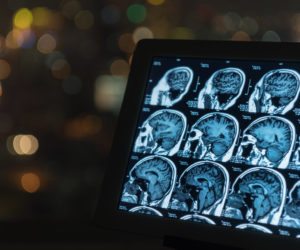Likelihood of Brain Damage after Drug Overdose

Substance Abuse and Addiction – The Likelihood of Brain Damage after Drug Overdose
The devastation that a drug addiction can cause can be severe. It can not only affect many areas of the person’s life, but it can leave lasting health problems. Brain damage after drug overdose is a concern for some drug users who have overdosed on drugs such as opioids and cocaine. According to the CDC, 2016 has had the most drug overdose deaths in recent history. 64,000 people died from various drug overdoses, fentanyl deaths being among the highest at 20,000 reported deaths.
With many drugs being stronger now than ever before, such as fentanyl, the risk of overdose has never been higher. The long term effects drug overdoses can cause, such as brain damage after drug overdose, will be discussed in this article.
What Causes an Overdose?
While some people may overdose on purpose to attempt suicide, the majority of overdoses are an accident. There is no standard for street drugs to adhere to and drugs such as fentanyl that is being produced illegally can be extremely potent. Since the buyer is unaware of how strong each dose is, they may take too much and have an overdose.
As a tolerance develops to drug abuse, which occurs with continued use, the person may end up taking far too much in an effort to feel the effects of the drug.
Mixing various drugs together can also cause an overdose, such as cocaine and alcohol or meth and opioids.
The Cause of Brain Damage after Drug Overdose
In the case of opioids such as heroin or fentanyl, the person’s heart rate and breathing is slowed down. It can be slowed down to such an extent that it can become a serious problem. One of the biggest causes behind brain damage after drug overdose is the lack of oxygen to the brain. Opioids can make your body forget to breathe due to effects it has on the nervous system.
The long term effects drug overdose can cause such as brain damage can happen very quickly. Hypoxic brain damage happens when the supply of oxygen is inadequate. Anoxic brain damage occurs when the supply of oxygen stops altogether. The longer the brain goes with a lack of oxygen, the great the risk of permanent damage.
Can a Drug Overdose Cause Permanent Brain Damage?
If you are wondering “can a drug overdose cause permanent brain damage?“, then the answer is yes. One of the drugs that have a high chance to lead to brain damage because of the lack of oxygen to the brain is opioids. The longer the person goes without enough oxygen to their brain, the higher the chance is that there will be permanent brain damage. Just three to five minutes without enough oxygen can cause permanent damage
Hypoxic Brain Damage
Each person who experiences an overdose and subsequent brain damage may have slightly different symptoms. Commonly seen brain damage caused by drug overdose includes the following:
- Vision and hearing may become impaired
- Concentration becomes difficult
- Memory loss
- Impaired movement, balance and a loss of coordination
- If the lack of oxygen is severe, it can lead to a vegetative state, retardation and eventually death
Seeking medical attention in a timely manner is utterly important once an overdose has occurred. In some states, even police officers come equipped with anti-opioid overdose medication due to the widespread abuse. Of course, the best way to avoid overdose and possible brain damage is to seek drug addiction treatment before an overdose occurs.
If you or a loved one needs help with abuse and/or treatment, please call the WhiteSands Treatment at (877) 855-3470. Our addiction specialists can assess your recovery needs and help you get the addiction treatment that provides the best chance for your long-term recovery.
